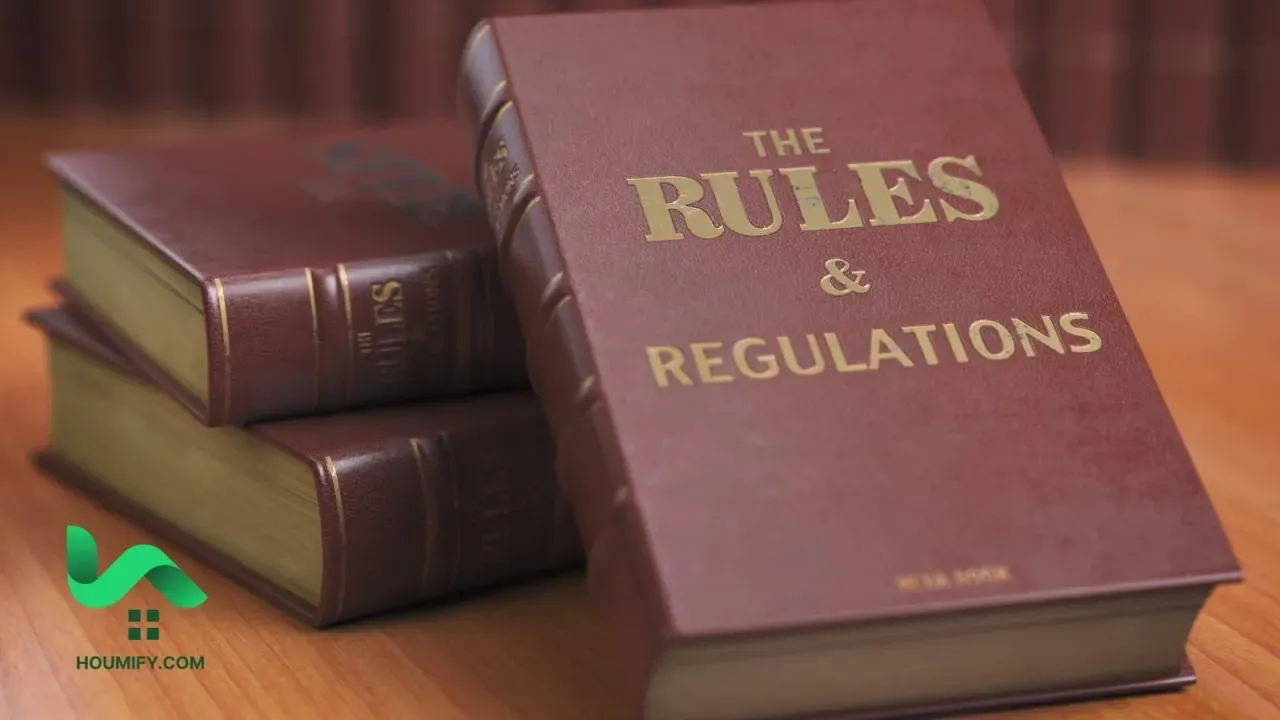The Foreclosure Abuse Prevention Act (FAPA) Safeguarding Homeowners and Streamlining Foreclosure Practices
Foreclosure is a word that brings distress and uncertainty to any homeowner. It's a situation that threatens not just your financial stability but also your peace of mind. In the complex legal world of foreclosure, homeowners have often found themselves struggling against powerful lenders and mortgage servicers. That’s where the Foreclosure Abuse Prevention Act (FAPA) steps in—offering protections and setting rules designed to curb unfair foreclosure practices. This guide will walk you through the key points of FAPA, its impact, and what it means for both homeowners and lenders.
What is the Foreclosure Abuse Prevention Act (FAPA)?
The Foreclosure Abuse Prevention Act (FAPA) was introduced to tackle common issues within the foreclosure process. It's part of a broader effort to protect homeowners from predatory and unethical practices by lenders and mortgage servicers. FAPA aims to make the foreclosure process fairer and more transparent, ensuring that homeowners are treated with the respect they deserve.

Why FAPA is Important: Addressing Foreclosure Abuses
Foreclosure allows lenders to take back properties when borrowers fall behind on their mortgage payments. While this process is supposed to help lenders recover their investments, it has sometimes been abused, leaving homeowners at a disadvantage. FAPA was created to put an end to these abuses, providing a framework that protects homeowners during one of the most vulnerable times of their lives.
Key Provisions of the Foreclosure Abuse Prevention Act (FAPA)
FAPA includes several important protections that help ensure homeowners are treated fairly during the foreclosure process:
Loan Modification Requirements
One of the main features of FAPA is that it requires mortgage servicers to explore all possible loan modification options before starting foreclosure. This gives homeowners a chance to stay in their homes by adjusting the terms of their loan to make payments more affordable.
Enhanced Communication
FAPA ensures that mortgage servicers must keep open, regular communication with borrowers. This means providing updates on the status of the loan, the foreclosure process, and any alternatives that might be available. Clear communication helps prevent homeowners from being blindsided by foreclosure actions.
Dual-Tracking Prohibition
Dual-tracking is when a mortgage servicer pursues foreclosure while also discussing loan modifications with the borrower. FAPA bans this practice, ensuring that foreclosure proceedings are put on hold while loan modifications are being considered. This gives homeowners a fair chance to work out a modification without the threat of foreclosure hanging over them.
Right to Appeal
Under FAPA, homeowners have the right to appeal a decision to foreclose on their property. This gives them a chance to present their case and any supporting evidence, providing a critical opportunity to reverse unfair foreclosure decisions.
Penalties for Non-Compliance
To ensure that these protections are taken seriously, FAPA imposes strict penalties on mortgage servicers who don’t follow the rules. These can include hefty fines and, in severe cases, criminal charges. This helps to make sure that servicers adhere to the law and respect homeowners’ rights.
Comparing Foreclosure Regulations: FAPA vs. California Laws
While FAPA sets a national standard, state laws also play a crucial role in protecting homeowners. California, for example, has strong consumer protection laws that offer additional safeguards:
Notice of Default
In California, lenders must issue a notice of default to the homeowner before foreclosure can begin. This notice provides details on the amount owed and what steps need to be taken to fix the situation. It’s an important first step that helps homeowners understand their options.
Right to Cure
California homeowners have the right to "cure" their default by paying what’s overdue along with any fees, within a certain period. This can stop the foreclosure process and give homeowners a chance to get back on track.
Notice of Sale
If the default isn’t cured, the lender must send a notice of sale at least 90 days before the foreclosure sale. This notice includes essential details like the date and location of the sale, giving homeowners time to respond or find other solutions.
Homeowner Bill of Rights
California's Homeowner Bill of Rights provides even more protections, such as requiring a single point of contact for borrowers and banning practices like "robo-signing." These measures help ensure that borrowers get consistent and accurate information throughout the foreclosure process.
Judicial vs. Non-Judicial Foreclosure
Most foreclosures in California are non-judicial, meaning they proceed without court involvement. This method is faster and less expensive but requires strict adherence to rules to protect homeowners' rights.
FAPA’s Impact in New York: A Closer Look
FAPA has brought significant changes to New York, especially with its retroactive application, which has sparked debates and legal challenges. The idea of applying new rules to actions that happened before the law was enacted has been controversial.
Retroactive Application and Legal Challenges
FAPA’s retroactive application has led to some legal battles. While some courts have upheld it to correct past injustices, others argue that it’s unfair to apply new standards to actions that were legal under previous laws. This has led to ongoing debates about fairness and due process.
Federal and State Court Rulings
Courts have been divided on how to handle FAPA's retroactive application. Some have dismissed foreclosure cases that were years old, while others have ruled that retroactivity isn’t fair to lenders. These varying opinions highlight the complex nature of foreclosure law.
Practical Implications of FAPA for Homeowners and Lenders
FAPA offers significant protections for homeowners but also places strict obligations on lenders and mortgage servicers. Here’s what both parties need to know:
Homeowner Protections Under FAPA
For homeowners, FAPA provides a strong defense against unfair foreclosure practices. It gives you clear options to challenge foreclosure actions, request loan modifications, and appeal decisions. However, the law is complex, so it’s often a good idea to get legal advice to fully understand your rights.
Lender and Servicer Compliance
Lenders and servicers need to ensure they’re fully compliant with FAPA to avoid penalties. This means reviewing foreclosure practices, maintaining open communication with borrowers, and following the rules on dual-tracking. Adding specific clauses to mortgage contracts can help protect against legal challenges related to FAPA.
News and Developments Surrounding FAPA
Since its introduction, FAPA has been a hot topic in legal and financial circles. The law continues to shape how foreclosures are handled, with ongoing court rulings and changes in industry practices.
Recent Legal Rulings
Recent court decisions have shown the contentious nature of FAPA's retroactive application. While some rulings support it, others raise concerns about fairness and due process. These ongoing legal challenges reflect the evolving nature of foreclosure law.

Financial Industry Response
The mortgage industry has responded to FAPA by adjusting foreclosure practices and, in some cases, challenging the law. Many lenders are now more cautious, ensuring that they meet FAPA’s requirements to avoid penalties.
Expert Perspectives on FAPA
Legal experts have widely discussed FAPA’s impact. One real estate law expert noted:
"FAPA is a game-changer in the foreclosure process. It emphasizes fairness and transparency, providing much-needed protections for homeowners and ensuring that their rights are respected."
Comprehensive Tips for Navigating FAPA
Whether you’re a homeowner or a lender, here are some tips to help you navigate FAPA effectively:
For Homeowners:
- Stay Informed:Keep up to date on your rights under FAPA. Websites like Houmify.com offer valuable resources and updates.
- Communicate:Stay in regular contact with your mortgage servicer to stay informed about your loan status and options.
- Seek Legal Advice:Consult a knowledgeable attorney to understand how FAPA applies to your situation.
- Document Everything:Keep detailed records of all communications and documents related to your loan and foreclosure proceedings.
- Explore Loan Modifications:If you’re struggling financially, actively seek out loan modification options.
- Exercise Your Right to Appeal:If you disagree with a foreclosure decision, don’t hesitate to appeal.
For Lenders and Servicers:
- Review Practices:Make sure your foreclosure practices comply with FAPA. Regular audits can help avoid non-compliance.
- Enhance Communication:Set up clear communication channels with borrowers and provide timely updates.
- Avoid Dual-Tracking:Ensure that foreclosure proceedings are paused during loan modification discussions.
- Incorporate Protective Clauses:Add clauses to mortgage contracts that address potential legal challenges related to FAPA.
- Stay Updated:Keep informed on the latest legal developments related to FAPA.
- Provide Training:Train staff on FAPA’s requirements to minimize legal risks and ensure compliance.
Frequently Asked Questions About FAPA
Q: What is the Foreclosure Abuse Prevention Act
(FAPA)?
A:FAPA is a federal law that protects homeowners
from unfair foreclosure practices, including requirements for loan
modifications and clear communication.
Q: Why was FAPA enacted?
A:FAPA was introduced to stop unethical
foreclosure practices and ensure a fair process for homeowners.
Q: When does FAPA apply?
A:FAPA applies to foreclosure actions by mortgage
servicers, with specific rules on loan modifications and
communication. Its retroactive application is still being debated
in courts.
Q: Who enforces FAPA?
A:Federal agencies, including the Consumer
Financial Protection Bureau (CFPB), enforce FAPA to ensure
compliance by mortgage servicers.
Q: How does FAPA impact homeowners?
A:FAPA gives homeowners protections against unfair
foreclosure practices, such as the right to request loan
modifications and appeal foreclosure decisions.
Q: Where can I learn more about FAPA?
A:Houmify.com is a great resource for learning
more about FAPA, offering detailed guides and updates.
Conclusion
The Foreclosure Abuse Prevention Act (FAPA) is a crucial step forward in protecting homeowners from abusive foreclosure practices. By enforcing strict regulations on lenders and mortgage servicers, FAPA aims to create a fairer and more transparent foreclosure process. Whether you’re a homeowner trying to keep your home or a lender navigating these new rules, understanding and complying with FAPA is essential.
Houmify.com, with its AI-driven technology and diverse listings, is a top resource in real estate. It offers valuable insights for buyers and sellers. Timing is key—whether you’re capitalizing on buyer's markets or finding quality homes at lower prices. By leveraging these tools and strategies, Houmify.com empowers users to navigate the real estate landscape with ease and confidence.
